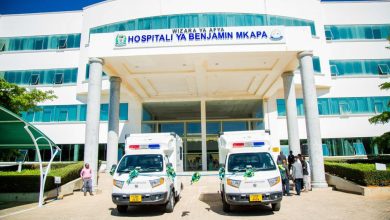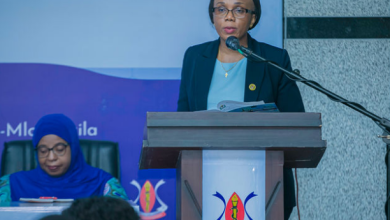Free Hepatitis screening detects several infections

MWANZA: FORTY-FOUR out of 441 Mwanza residents who turned up for a free hepatitis screening at Bugando Zonal Referral Hospital’s Specialised Polyclinic were found to be infected.
The screening, part of World Hepatitis Day activities, also provided free vaccinations to the remaining participants.
The hospital’s specialist in internal medicine and liver diseases, Dr David Majinge, noted that hepatitis cases appear to be on the rise, with the hospital receiving between six and eight new patients weekly.
He urged the public to undergo regular checkups and emphasised the importance of completing the full three-dose vaccination schedule.

The first dose is administered after screening, followed by the second dose after one month and the final dose after six months, providing up to 40 years of protection.
He warned that skipping any of the doses renders the vaccination incomplete and ineffective.
Dr Majinge also cautioned residents near Lake Victoria against consuming untreated water, which can lead to diseases like snail fever. He explained that a co-infection of snail fever and hepatitis can cause severe liver damage, leading to liver shrinkage and, eventually, cancer.
Highlighting the different types of hepatitis, Dr Majinge said that types A and E are typically self-limiting and can be prevented with good food hygiene. He warned that types B and C are the most dangerous, as they share similar transmission routes with HIV/AIDS.
He further explained that there is currently no vaccine for hepatitis C, and that hepatitis D cannot occur without the presence of hepatitis B.
He added, “Hepatitis D cannot occur without the presence of hepatitis B, as they usually co-infect. Therefore, getting vaccinated against hepatitis B also protects against hepatitis D.”
Dr Majinge expressed appreciation to the government, noting that all types of hepatitis are now treatable, with full recovery taking as little as 12 weeks. This advancement has helped reduce the burden, with prevalence dropping from 7 per cent in 2023 to 6.1 per cent last year.
“The decline is partly due to the introduction of hepatitis vaccines for newborns. Currently, babies receive the first dose two weeks after birth and research is underway to administer it on the day of birth,” he said.
ALSO READ: Over 1,000 to attend KCMC free hepatitis screening
Supporting this, Dr Mathias Mlewa, a lecturer at the Catholic University of Health and Allied Sciences, stressed the importance of vaccinating newborns. He said research shows that hepatitis B prevalence is higher among younger populations, largely due to their weaker immune systems compared to adults.
One of the free screening beneficiaries, Ms Veronica Mapuya from Sengerema District, praised the initiative. She said it not only confirmed she was hepatitis-free but also provided her with valuable counselling on maintaining good health through a balanced diet.





